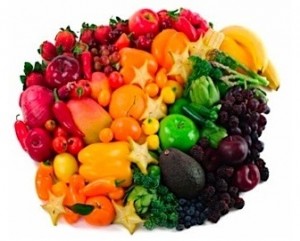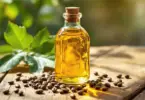By Gaye Levy
Guest Writer for Wake Up World
In a survival situation, all of the gear in the world will be of no use if you do not have a sound mind and body. As far as the mind goes, you need to handle stress, cope and learn to roll with the punches.
But the body? That is another story. Whether blessed with excellent health or just teetering on the fringes of wellness, there are things you can do day to day to help you achieve maximum wellness given your own genetics and current body state.
You may have heard before about the Rainbow Diet and thought “Cripes, here comes the latest fad diet of the year”. But truly, the Rainbow Diet is not a fad. Instead it is a way of eating that promotes lots of fruits and veggies which contain phytochemicals to help you build that strong body I mentioned. It is a colorful diet (thus the “rainbow”) and one that includes foods of different colors that not only taste good but that are pretty to look at as well.
[pro_ad_display_adzone id=”110028″]
Hold On… What are Phytochemicals?
Technically speaking, phytochemicals are non-nutritive plant chemicals that have protective or disease preventive properties. They are found in plants and give the plants both color and unique healing properties.
Some of the great benefits of phytochemicals include reducing inflammation, improving immune health, and boosting heart health. Reportedly, some are even credited to be protective against cancer.
Here is what the American Cancer Society has to say:
The term “phytochemicals” refers to a wide variety of compounds produced by plants. They are found in fruits, vegetables, beans, grains, and other plants. Scientists have identified thousands of phytochemicals, although only a small fraction have been studied closely. Some of the more commonly known phytochemicals include beta carotene, ascorbic acid (vitamin C), folic acid, and vitamin E.
Some phytochemicals have either antioxidant or hormone-like actions. There is some evidence that a diet rich in fruits, vegetables, and whole grains reduces the risk of certain types of cancer and other diseases, and researchers are looking for specific compounds in these foods that may account for the beneficial effects in humans. Available scientific evidence does not support claims that taking phytochemical supplements is as helpful as consuming the fruits, vegetables, beans, and grains from which they are taken.
Phytochemicals are promoted for the prevention and treatment of many health conditions, including cancer, heart disease, diabetes, and high blood pressure. There is some evidence that certain phytochemicals may help prevent the formation of potential carcinogens (substances that cause cancer), block the action of carcinogens on their target organs or tissue, or act on cells to suppress cancer development. Many experts suggest that people can reduce their risk of cancer significantly by eating more fruits, vegetables, and other foods from plants that contain phytochemicals.
What Color is Your Rainbow?
To reap the benefits of phytochemicals and to achieve a balance of healthy vitamins, minerals and antioxidants, think colors of the rainbow as you fill your plate with food to eat. For preppers who have learned to garden and plant fruit trees, this should come easy since most of the bounty will be fresh and colorful.
Red (or Bright Pink): Apples, cranberries, cherries, bell peppers, pomegranates, raspberries, tomatoes, strawberries, papayas, grapefruit, watermelons, and guavas.
Orange: Oranges, bell peppers, carrots, pumpkins, peaches, apricots, sweet potatoes, and cantaloupes.
Yellow: Lemons, mangos, corn, pineapples, bananas, yellow bell peppers, and squash.
Green: Kale, spinach, dark leafy lettuce, seaweed, avocados, zucchini, Brussels sprouts, asparagus, peas, and broccoli.
Blue: Blueberries, bilberries, black currants, eggplants, blackberries, and beets.
Purple: Grapes, black beans, black cherries, prunes, raisins, boysenberries, passion fruit, purple cabbage, plums, and flowers from sage, rosemary, and thyme.
What About Freeze Dried Fruits and Vegetables?
According to research done by the American Dietetic Association, freeze-dried fruits and vegetables contain the same amounts of phytochemicals as their fresh counterparts. As a matter of fact, researchers at the American Institute for Cancer Research have been studying the effects of the phytochemicals and antioxidants in freeze-dried foods on cancer cells and have gone so far as to suggest that the antioxidants and phytochemicals in freeze-dried fruits and vegetables reach and travel through the blood stream just as they would if they were consumed fresh.
Surely that is good news for those of us that have stored freeze dried food for the long term. And even those that have not – and have chosen to can or dehydrate food themselves – can rest assured that the phytochemicals and antioxidants have been maintained.
And let us not forget about those dried beans and other legumes. They too are rich in phytochemicals and high in fiber too, a double whammy of goodness for preppers smart enough to store them in bulk in addition to including them as part of their daily meal.
The Arizona Center for Integrative Medicine at the University of Arizona has a printable chart showing the various phytochemicals, their food sources and their benefits. Click here to download a copy.
The Final Word
Some will call these rainbow foods “power foods” and others will call them “super foods”. By any name, however, incorporating phytochemicals into your diet can help you improve or maintain your health. The best way to do this is to make these colorful foods a big part of your diet – say 50% or more which, by the way, is what I do.
Beyond day to day supermarket shopping, you need to think color when selecting seeds and plants to grow in your garden. Peppers, beets, carrots, berries, spinach, sweet potatoes and more – the list is endless. Just be sure to select non-GMO seeds and plants so that you can ensure that you are growing real foods and not some corporate giant’s concept of food designed to reap profits with little regard to health.
Enjoy your next adventure through common sense and thoughtful preparation!
Gaye
Recent articles by Gaye Levy
- Growing, Grinding and Cooking Wheat
- 28 Ways to Use Coffee Filters for Survival
- The 10 Commandments of Survival
- 10 Simple Steps Toward Self-Sufficiency
- City Farming with Backyard Quail – An Alternative to Raising Chickens
- Creating a Healing Garden – 9 Healing Herbs You Can Grow Yourself
About the author
Gaye Levy, also known as the Survival Woman, grew up and attended school in the Greater Seattle area. After spending many years as an executive in the software industry, she started a specialized accounting practice offering contract CFO work to emerging high tech and service industries. She has now abandoned city life and has moved to a serenely beautiful rural area on an island in NW Washington State. She lives and teaches the principles of a sustainable and self-reliant lifestyle through her website at BackdoorSurvival.com.
At Backdoor Survival, Gaye speaks her mind and delivers her message of prepping with optimism and grace, regardless of the uncertain times and mayhem swirling around us.
You can find Gaye through her website at Backdoor Survival, on the Backdoor Survival Page on Facebook, and as Survival Woman on Twitter.
[pro_ad_display_adzone id=”110027″]







